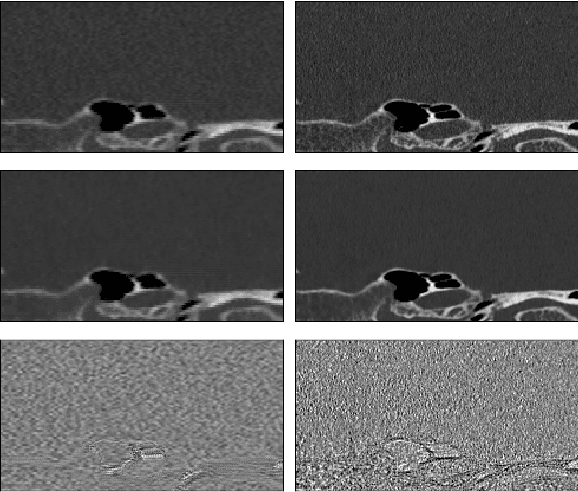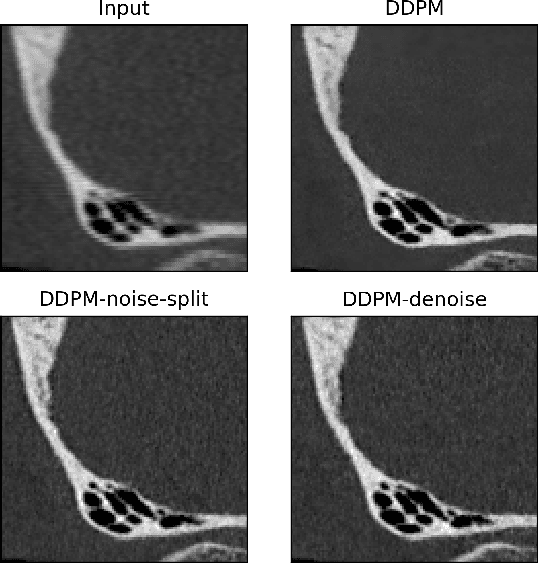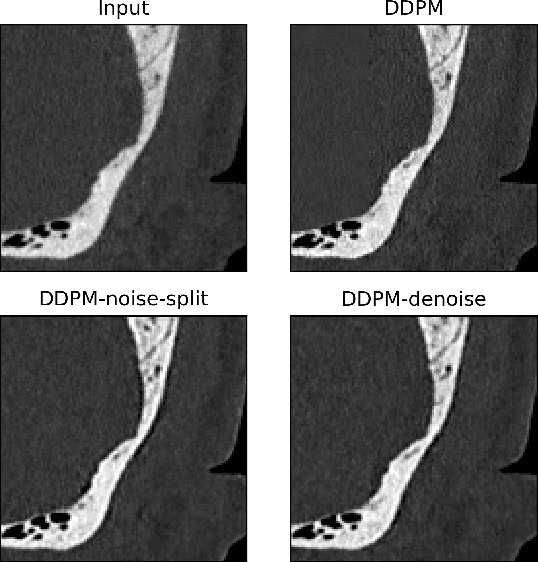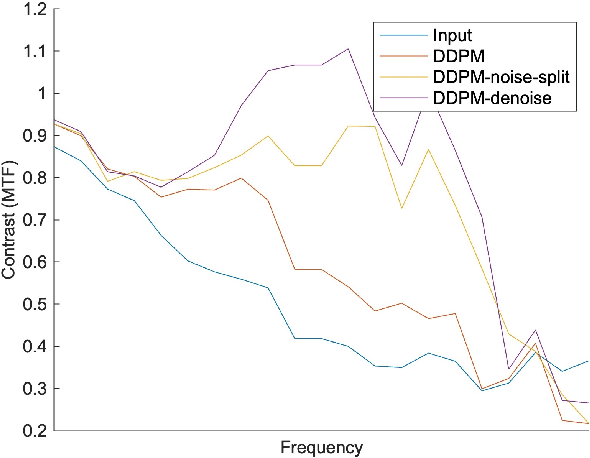Jonathan S Maltz
Photon-counting CT using a Conditional Diffusion Model for Super-resolution and Texture-preservation
Feb 25, 2024



Abstract:Ultra-high resolution images are desirable in photon counting CT (PCCT), but resolution is physically limited by interactions such as charge sharing. Deep learning is a possible method for super-resolution (SR), but sourcing paired training data that adequately models the target task is difficult. Additionally, SR algorithms can distort noise texture, which is an important in many clinical diagnostic scenarios. Here, we train conditional denoising diffusion probabilistic models (DDPMs) for PCCT super-resolution, with the objective to retain textural characteristics of local noise. PCCT simulation methods are used to synthesize realistic resolution degradation. To preserve noise texture, we explore decoupling the noise and signal image inputs and outputs via deep denoisers, explicitly mapping to each during the SR process. Our experimental results indicate that our DDPM trained on simulated data can improve sharpness in real PCCT images. Additionally, the disentanglement of noise from the original image allows our model more faithfully preserve noise texture.
PPFM: Image denoising in photon-counting CT using single-step posterior sampling Poisson flow generative models
Dec 19, 2023Abstract:Diffusion and Poisson flow models have shown impressive performance in a wide range of generative tasks, including low-dose CT image denoising. However, one limitation in general, and for clinical applications in particular, is slow sampling. Due to their iterative nature, the number of function evaluations (NFE) required is usually on the order of $10-10^3$, both for conditional and unconditional generation. In this paper, we present posterior sampling Poisson flow generative models (PPFM), a novel image denoising technique for low-dose and photon-counting CT that produces excellent image quality whilst keeping NFE=1. Updating the training and sampling processes of Poisson flow generative models (PFGM)++, we learn a conditional generator which defines a trajectory between the prior noise distribution and the posterior distribution of interest. We additionally hijack and regularize the sampling process to achieve NFE=1. Our results shed light on the benefits of the PFGM++ framework compared to diffusion models. In addition, PPFM is shown to perform favorably compared to current state-of-the-art diffusion-style models with NFE=1, consistency models, as well as popular deep learning and non-deep learning-based image denoising techniques, on clinical low-dose CT images and clinical images from a prototype photon-counting CT system.
 Add to Chrome
Add to Chrome Add to Firefox
Add to Firefox Add to Edge
Add to Edge